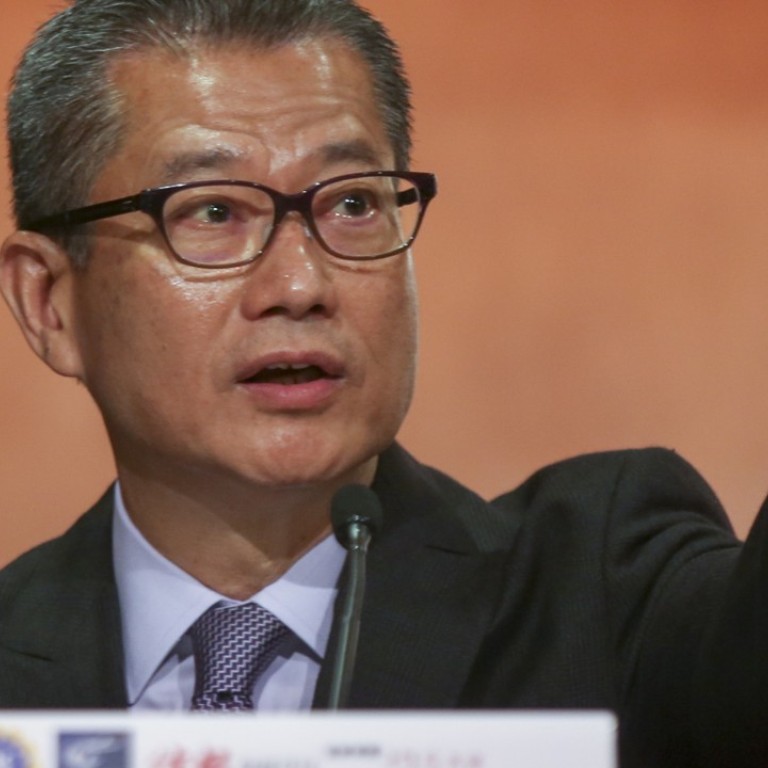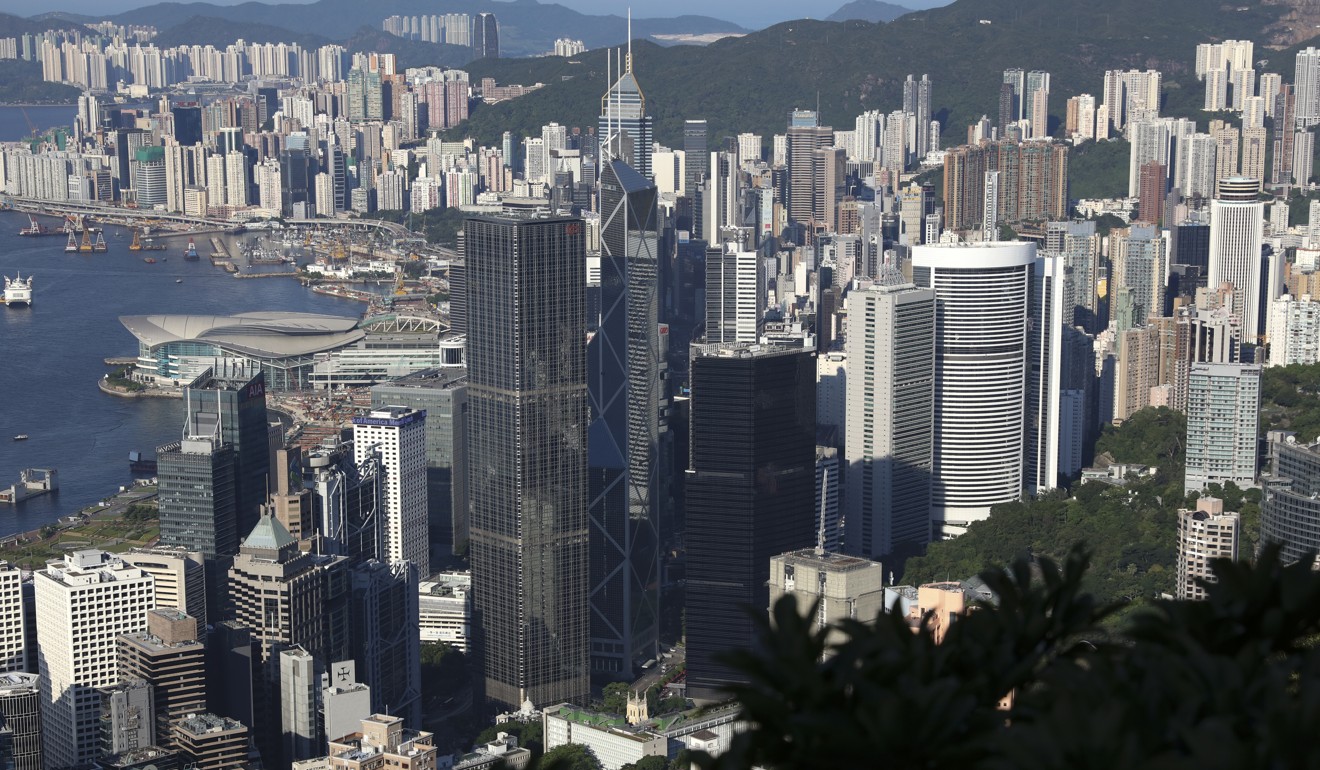
Hong Kong finance chief expects strong growth to continue into 2018, and another big surplus
Exports, strong domestic demand and rebounding tourism sector credited with spurring expansion, with stock market high and unemployment low
Hong Kong’s economy will get 2018 off to a good start, riding on growth in exports, robust domestic demand and the end of a tourism slump, the city’s financial chief said on Saturday.
Hong Kong’s economy has shown strong growth over recent months, expanding by 3.6 per cent between July and September, above the 2.9 per cent average for the past decade. The government expected 2017’s economic growth to be 3.7 per cent.
We must invest in Hong Kong’s future, not dish out sweeteners, finance chief says
The positive story continued into 2018, most notably in the stock market – the Hang Seng Index closed on a record high for four straight days over the past week, finishing at a historic 32,254 on Friday.
“We expect to continue the upward trend from 2017,” Chan told a financial forum on Saturday. “Currently both our external trade and internal demand are very robust.”
That said, Chan admitted the government still had economic challenges ahead, with the city’s land shortage the most pressing.
Watch: Why is Hong Kong housing so expensive?
“It is with great shame that I gave it my all during my 4½ years as development chief, and I could only meet the land supply target for private residential developments,” he said.
Since Chan took office as development chief in July 2012, the supply of new private homes on the local market has grown steadily, with a record 97,000 homes expected to be available over the coming three to four years. But the huge demand for public housing remains unsatisfied, with an average applicant now having to wait for 4.6 years before getting a subsidised government flat.

In a thinly veiled attack against groups who regularly oppose the rezoning of certain sites for residential purposes, Chan said there cannot be all talk and no action.
“Different methods will have different controversies. That’s fine, we can bring it up for discussion. But after discussing we have to act, hopefully with the support of the public and not under opposition, or else everyone will suffer,” he said.
Chan, due to unveil his second budget at the end of February, has already forecast a “a very high level” of budget surplus this year.
Flats above container port could ease housing shortage, Hong Kong engineers say amid government scepticism
Recent large surpluses have already fattened the government’s fiscal reserves. In his last budget, Chan announced a HK$92.8 billion surplus, taking the reserves to more than HK$935 billion. The public coffers already took in a cumulative surplus of HK$57.2 billion in the first eight months of the current financial year, ending in November.
Asked by a forum audience member whether the government would use the surplus to relieve poverty, Chan said he had always paid close attention to the poor but that such problems were not to be solved by “one or two budgets”.

